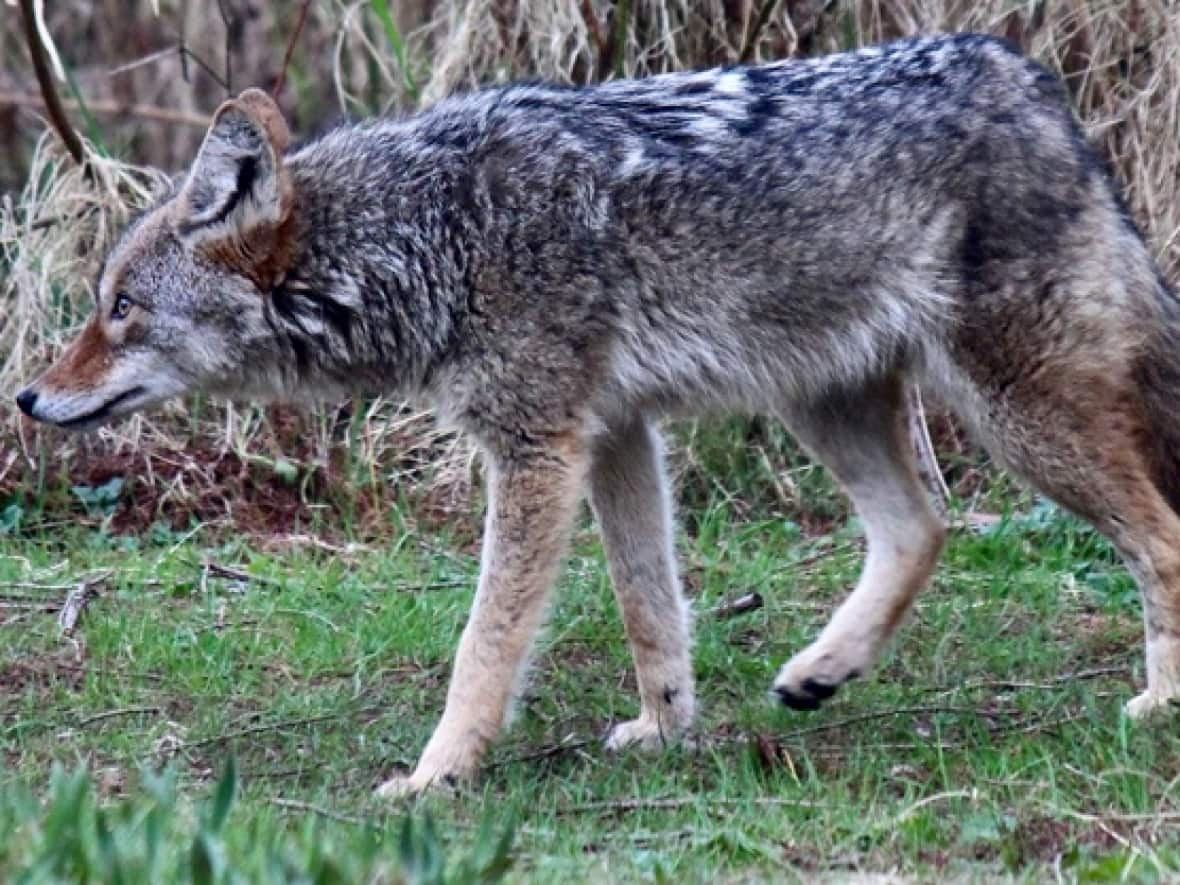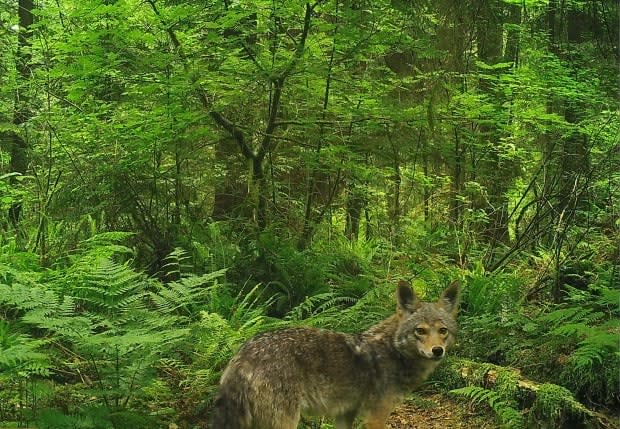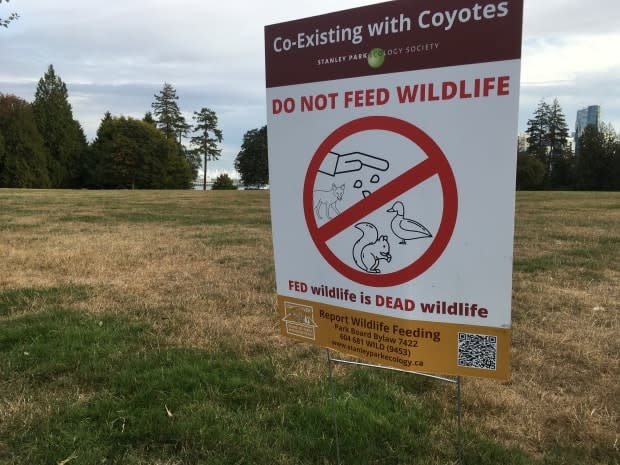No coyote attacks in Stanley Park reported since September cull, ministry says

In the three months since B.C.'s Ministry of Forests trapped and killed the last of 11 aggressive coyotes in Vancouver's Stanley Park, there have been no reports of people being bitten by the remaining animals.
Two people riding bicycles were reportedly chased by a coyote in early October, according to the B.C. Conservation Officer Service, but no one has been injured.
Forty-five people, including children, reported being bitten or nipped in the park by a coyote between December 2020 and late August of this year.
After repeated warnings to the public to not feed wild animals in the park, not leave garbage around and not visit the park at night, the province stepped in with the cull as a last resort.
The park was closed overnight for two weeks in early September so the coyotes could be trapped and killed to curb the growing number of attacks on humans.
During the cull conducted by the Ministry of Forests, Lands, Natural Resource Operations and Rural Development, four animals were destroyed while seven had been killed by conservation officers prior to the park closure.
Cyclists chased
The B.C. Conservation Officer Service said in a statement that on Oct. 1 at around 12:30 p.m. — 10 days after the cull — there were reports of a coyote chasing a cyclist. At 2 p.m. the same day another report was made to the provincial Report All Poachers and Polluters (RAPP) line of a coyote chasing a cyclist near the Bridle Path.

"It is not normal behaviour for coyotes to pursue people," said the statement.
Since then, there have been no other reported incidents of coyotes chasing, attacking, or biting humans. The last recorded biting incident in the park occurred on Aug. 11.
Sightings
The Stanley Park Ecology Society (SPES), which records sightings of coyotes in Stanley Park, says since the cull was completed on Sep. 21, there have been more than two dozen reported sightings of coyotes in several areas of the park.
"People have seen them from a distance and they run away when people are around, which is very encouraging," said Nadia Xenakis, the urban wildlife program coordinator for SPES.
"That's how coyotes should be behaving in Stanley Park."
The ongoing aggressive attacks in the four-square-kilometre Stanley Park, which gets around 10 million visits each year, befuddled researchers and officials.

UBC's Kristen Walker, who has been studying coyotes in the park by using motion-capture cameras, says results from necropsies of the culled animals have not been completed and a task force made up of researchers and multiple levels of government has been formed to discover all the factors that contributed to the attacks.
In the meantime, she says the feeding of wildlife in the park has continued and if it doesn't stop, it could once again contribute to problems with coyotes there.
"As a community we still need to be able to work toward coexistence in the park," she said. "Coexistence is something we need to create. We still have a ways to go."
Feeding wildlife now illegal
In late October, a bylaw was enacted by city officials, making it illegal to feed any wildlife in any city park. The penalty is a $500 fine.
The Vancouver Park Board said in an email to CBC News that, to date, no one has been fined under the new bylaw.
It said that park rangers are working to have people comply through education but will issue tickets if required.
Park rangers do not have the authority under the Police Act to ask for identification in order to hand out fines, but the park board said police officers and provincial conservation officers do, and park rangers may call on them for support.
In September, two people were arrested for breaching the provincial Wildlife Act for allegedly feeding coyotes. The province has not yet said what penalties they are facing.
Feeding study
Walker and Xenakis said a new study has been launched in the park to better understand the feeding of animals there, whether directly or indirectly, such as leaving out garbage.
The park board said an awareness campaign "to inform residents of the dangers and consequences of feeding wildlife" will continue and ramp up during coyote-breeding season in the spring.
Xenakis and other experts still aren't sure exactly how many coyotes are living in the park and if the ones seen are the same animal, but she is not surprised the animals are around.
"I anticipate that there's probably a handful of coyotes in the park right now that may have been here before the cull or may have moved in after the cull," she said.
Scare coyotes away
Walker said if people see coyotes in the park, they should try to haze them by making noise and scaring them away.
"You're not going up, you're not trying to approach it to get that picture," she said. "If anything, what we could be doing is trying to ensure the coyotes are keeping that healthy distance."
The public is asked to report any aggressive coyote behaviour or feeding of coyotes to the RAPP line at 1-877-952-7277.


